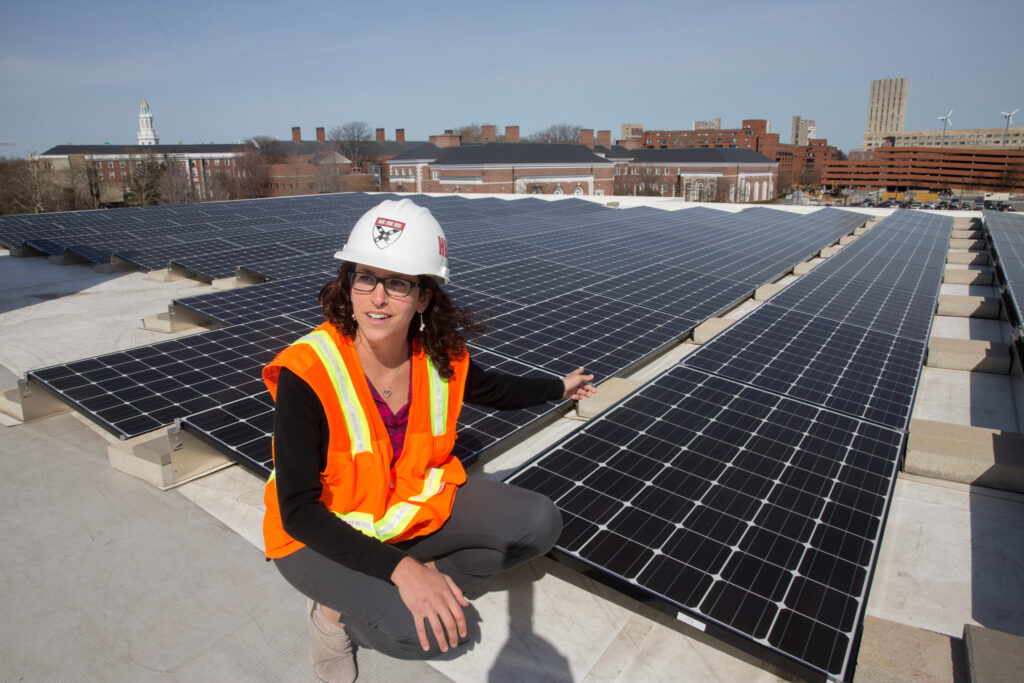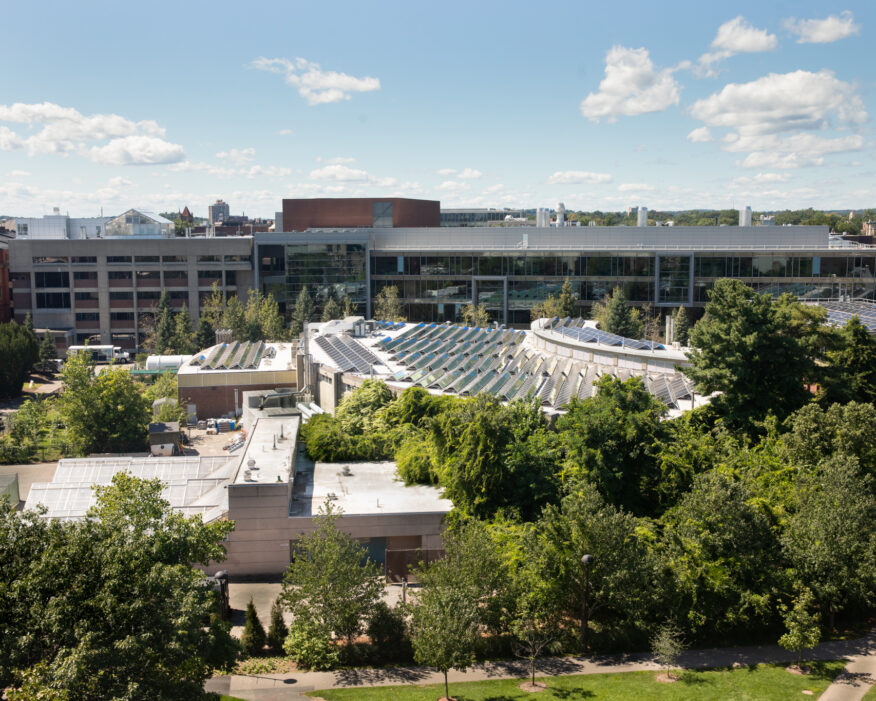Smart Investing for the Future
Green Revolving Fund
The Green Revolving Fund (GRF) is a $37 million interest-free loan fund available to project teams implementing energy efficiency, fossil fuel reduction and sustainability innovation projects across campus. The GRF is a financial resource established by Harvard in the 1990s and increased in size from $12 million to $37 million in 2024; it is a key mechanism to support to Harvard Schools and Unit implementation of projects toward achieving Harvard’s climate action goals and city-wide regulatory emission targets.
Key priorities for Harvard capital projects include:
- Continue implementing and optimizing energy efficiency and energy recovery,
- Design for low temperature hot water heating systems during renovation,
- Electrify fossil-fuel based equipment when replacing systems at end-of-life

These pieces of guidance are consistent pillars holding up the University’s building decarbonization strategy and the GRF stands as a resource for implementing this guidance.
Since its inception, the GRF has supported more than 250 projects that today yield millions in cost savings annually and helped Harvard achieve a 30% cut in GHG emissions from 2006-2023, despite University campus growth. Funded projects can include energy recovery, electrification, lighting and MEP efficiency upgrades, kitchen electrification, all types of commissioning, controls, insulation, renewable energy and more.
The model is simple:
- Project teams submit an application for the GRF. Reach out to Samantha Sharma (Samantha_Sharma@Harvard.edu) for a copy of the application template.
- Project teams implement the project at their facilities
- The GRF provides the up-front capital for these projects upon completion
- Project teams repay the zero-interest loan in 10 years or less with the help of savings achieved by project-related reductions in utility consumption, waste removal or operating costs
Project Criteria
Projects that are eligible for GRF funding include:
- Projects that provide a measurable sustainability benefit that reduces fossil fuel emissions, energy use, water use, waste, etc.
- Efficiency projects with simple paybacks (via utility savings) of 10 years or less, setting repayment in accordance with expected utility savings.
- Electrification projects (including those with simple paybacks longer than 10 years), setting repayment in accordance with expected utility savings or 10 years.
- Projects that do not install fossil fuel equipment.
Exemption Requests can be filed with an application for projects that fall outside of these criteria. Exemption Requests will be reviewed by the GRF steering committee on a case-by-case basis.
GRF loans can cover:
GRF loans can cover:
- The full cost of energy efficiency or energy recovery components of a project
- The incremental cost of high-efficiency vs. standard-efficiency equipment
- The full cost of building-level electrical infrastructure upgrades needed to enable electrification (also for vehicle charging)
Soft costs for projects are approved on a case-by-case basis via an exemption request, and most likely approved for innovations and emerging technologies.
Harvard Expands Green Revolving Fund to support campus decarbonization
Harvard increased the size of its Green Revolving Fund (GRF) from $12 million to $37 million in 2024, providing additional funds to Harvard’s Schools and Business Units to accelerate campus decarbonization and move the University closer toward its goal to be Fossil Fuel-Free by 2050 and meet city building emissions reduction regulations.

How We Build
Harvard is accelerating sustainable building to enhance health, productivity, and quality of life on campus – as well as for those in our value chain and their communities.
